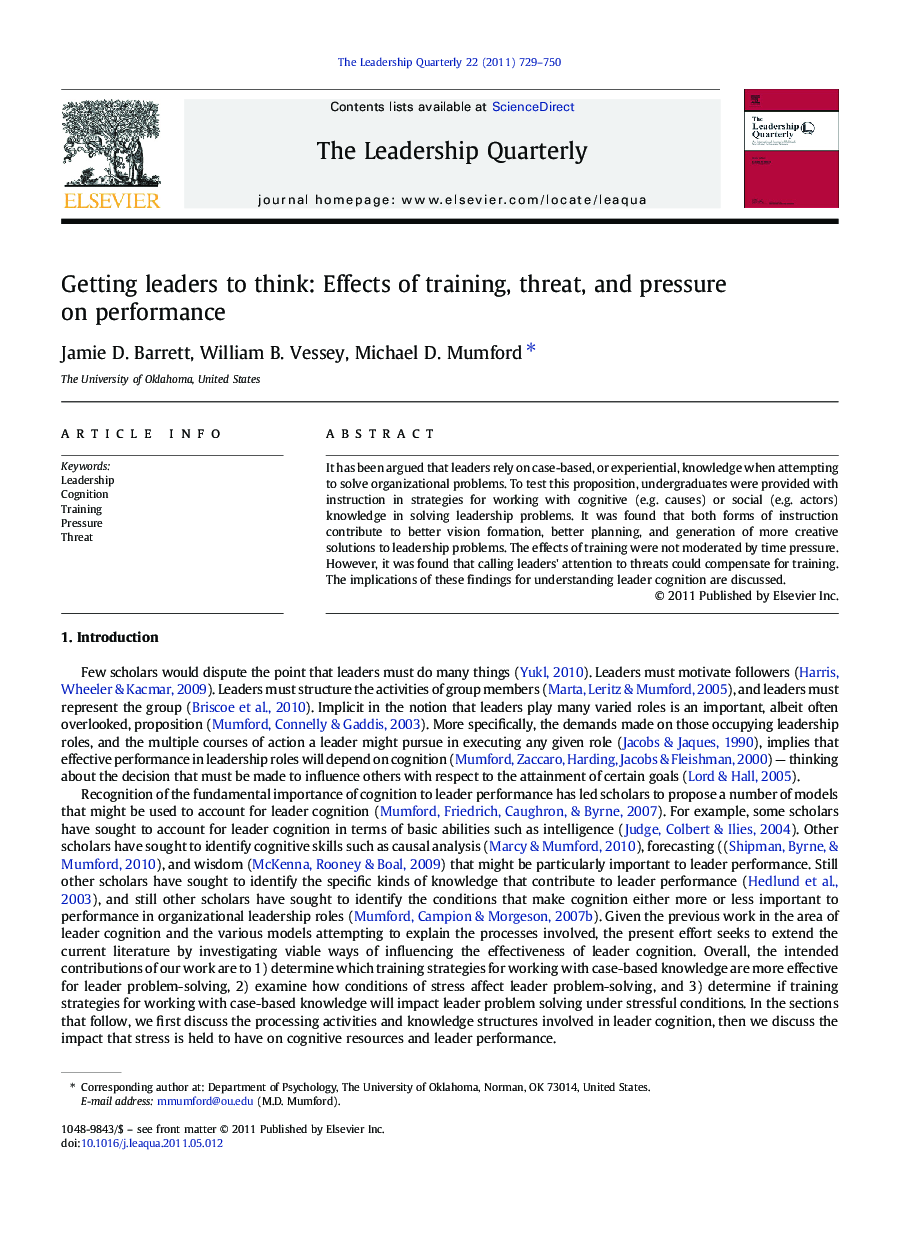| Article ID | Journal | Published Year | Pages | File Type |
|---|---|---|---|---|
| 887806 | The Leadership Quarterly | 2011 | 22 Pages |
Abstract
It has been argued that leaders rely on case-based, or experiential, knowledge when attempting to solve organizational problems. To test this proposition, undergraduates were provided with instruction in strategies for working with cognitive (e.g. causes) or social (e.g. actors) knowledge in solving leadership problems. It was found that both forms of instruction contribute to better vision formation, better planning, and generation of more creative solutions to leadership problems. The effects of training were not moderated by time pressure. However, it was found that calling leaders' attention to threats could compensate for training. The implications of these findings for understanding leader cognition are discussed.
Related Topics
Social Sciences and Humanities
Business, Management and Accounting
Business and International Management
Authors
Jamie D. Barrett, William B. Vessey, Michael D. Mumford,
